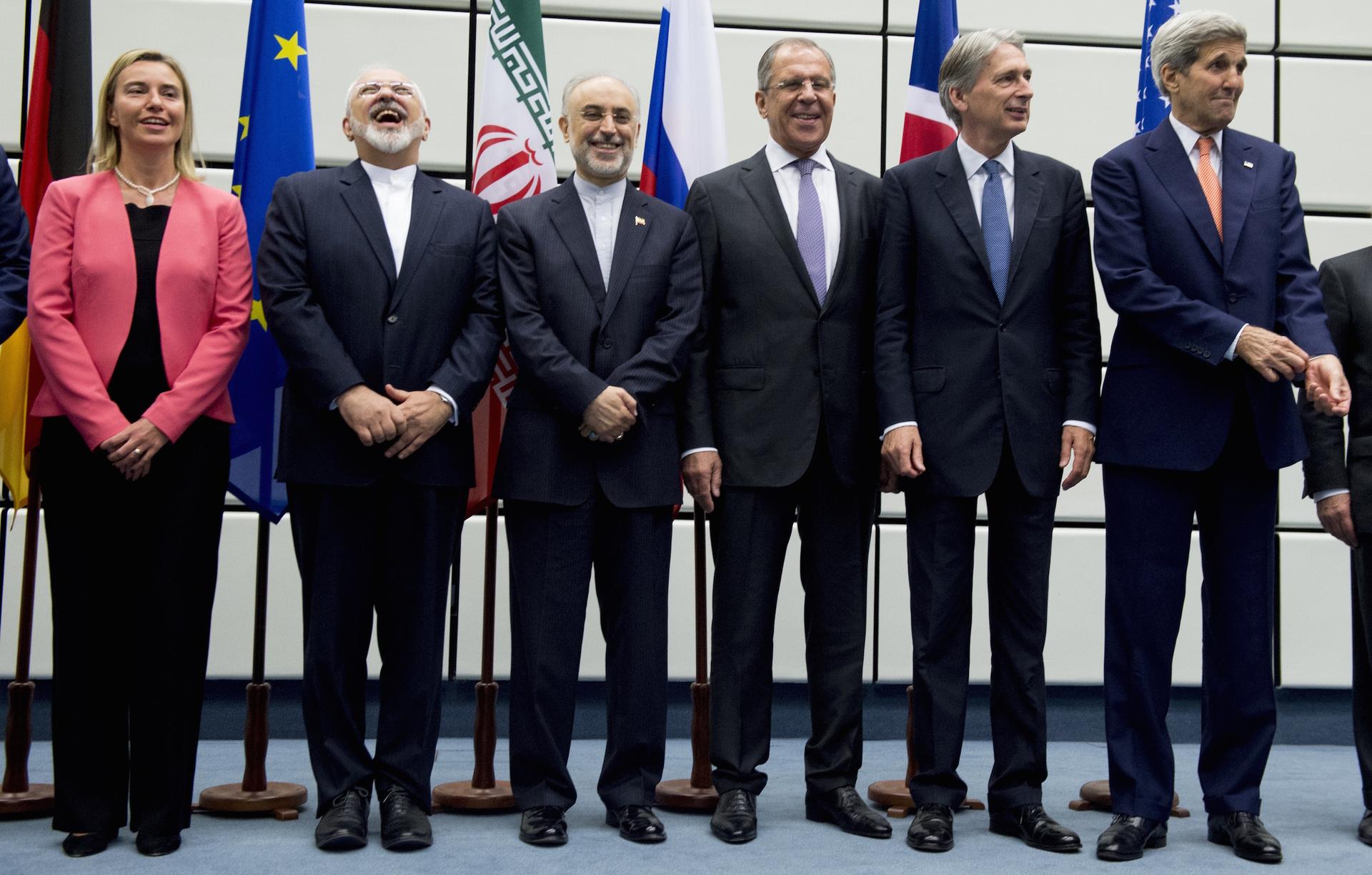Syrians worry the Iranian nuclear deal is bad for their country
European Union High Representative for Foreign Affairs and Security Policy Federica Mogherini, Iranian Foreign Minister Mohammad Javad Zarif, Head of the Iranian Atomic Energy Organization Ali Akbar Salehi, Russian Foreign Minister Sergey Lavrov, British Foreign Secretary Philip Hammond and US Secretary of State John Kerry pose for a group picture at the United Nations building in Vienna, Austria July 14, 2015.
BEIRUT, Lebanon — A historic accomplishment or a historic mistake? Depending on who you ask, the deal struck between Iran and world powers over its nuclear program was one or the other.
Following 18 days of intense negotiations in Vienna, and before that a good few years of talks, a final agreement has just been reached between Iran and the US, UK, France, China, Russia and Germany.
The agreement stipulates that Iran must curb its nuclear program in return for the removal of a punishing sanctions regime. Supporters of the deal say it will prevent Iran from getting a bomb and make a conflict over the issue less likely.
Speaking after the deal was announced, Barack Obama said that "every pathway to a nuclear weapon is cut off" and the world was “safer and more secure” as a result. His Iranian counterpart Hassan Rouhani said the deal heralded a “new chapter” in Iran’s relations with the world.
But not everyone is happy about it. There are some who simply don’t believe Iran when it says it does not want a nuclear weapon.
The Israeli prime minister Benjamin Netanyahu called the deal a “historic mistake for the world”, adding that Iran would receive “hundreds of billions of dollars with which it can fuel its terror machine and its expansion and aggression throughout the Middle East and across the globe.”
On his last point, Netanyahu can find agreement in an unlikely place. A number of rebel groups fighting in Syria expressed reservations about the deal on Tuesday, saying that Iran would use the financial boost that will come from the dropping of sanctions to support its allies Bashar al-Assad and Hezbollah.
A member of Jaysh al-Islam, a coalition of Islamist rebel groups, told GlobalPost that the agreement “will allow Iran to continue destabilizing the region.”
“Now it has more money to recruit fighters and fund the regime army and its sectarian militia,” he added. He compared the deal to Obama’s “red line” warning to Bashar al-Assad, in which the president warned that any use of chemical weapons on civilians would have consequences.
More from GlobalPost: Israel has been exaggerating the Iranian nuclear threat for years
Syrian civilians who oppose Assad are also anticipating more weapons and money to flow to the president. Syrian blogger Maysaloon wrote of the deal:
“We're told by reasonable people that of course, "no deal is perfect". What they won't say is that the "imperfect" bits are Syria, and that the millions of people who can't go home anymore, and the hundreds of thousands who have died in the last four years, are directly a result of Tehran's actions.”
Issam al-Rayes, a spokesman for a coalition of moderate rebel groups called the Southern Front, said Iran’s improved relations with the international community should make it think twice about supporting Assad.
“If Iran is serious about being responsible they will stop supporting regimes like Assad’s, who use barrel bombs against their own people and sacrifice their own people so that Assad can stay in power.”
The story you just read is accessible and free to all because thousands of listeners and readers contribute to our nonprofit newsroom. We go deep to bring you the human-centered international reporting that you know you can trust. To do this work and to do it well, we rely on the support of our listeners. If you appreciated our coverage this year, if there was a story that made you pause or a song that moved you, would you consider making a gift to sustain our work through 2024 and beyond?
